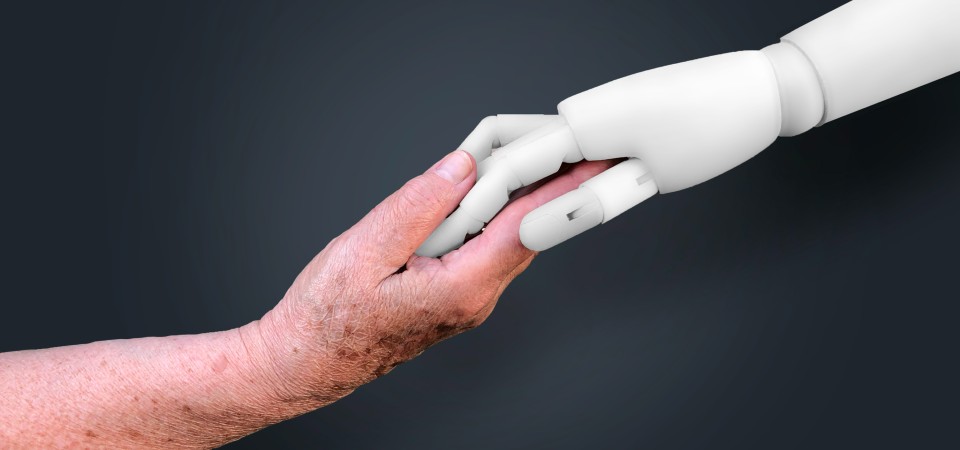Socially-Assistive Robots (SARs), such as interactive companions and care aids, are increasingly being used to support independent living.
These include devices like ElliQ, which offers reminders and conversation to older adults, or smart assistants such as Alexa and Google Home that help manage everyday tasks.
 An Amazon Alexa device. Image: Getty
An Amazon Alexa device. Image: Getty
Professor Massimiliano Zecca, of Loughborough University, co-led the report: Automating the Home, published by the Institution of Mechanical Engineers (IMechE).
He said: “At the end of the day, a home care robot is only as good as its ability to understand and react to the person it's helping.
“That’s about so much more than just following voice commands. It means the robot has to track a person's wellbeing and what’s happening in a real, everyday environment so it can provide the right support at the right time.
“And that’s why our report is so clear: setting up some ground rules for this is the key to making this technology both helpful and safe.”
While these technologies promise enormous benefits – reducing loneliness, supporting overstretched carers, and easing pressure on the NHS – they also raise important questions about safety, privacy, and trust.
Currently, there is no clear framework in the UK to regulate these types of care robots when used in people’s homes.
The report warns that while industrial and hospital robots follow strict international safety standards, these don’t adequately apply to the unpredictable, everyday settings of domestic life—where children, pets, and untrained users are part of the environment.
The authors of the report have set out nine key recommendations (below) to ensure that SARs can be safely and ethically integrated into UK homes and healthcare systems.
- Safety first: The report calls for comprehensive safety standards tailored to homes – covering risks such as tripping, entanglement, or unintended contact with vulnerable users. These should be based on international models like ISO 13482 but enforced nationally through legislation and certification.
- Clear ethics and consent: New national ethical guidelines are needed to ensure users understand what robots can and can’t do, how their data is used, and when human oversight is required. The report proposes a national ethics advisory group to shape and monitor these rules.
- Person-centred design: SARs should focus on comfort and personalisation. Health services should monitor how people interact with robots and collect feedback to improve future models. There should also be systems in place to resolve complaints and concerns from users.
- Stronger data protection: SARs collect sensitive information, from health data to daily routines. The report recommends updating UK data laws – or introducing new, robotics-specific legislation – to enforce encryption, secure storage, and informed user consent.
- Funding innovation: Public and private investment is essential. The report urges the government to increase R&D funding, support innovation hubs, and prioritise technologies that are co-designed with users and care professionals.
- Public awareness and training: Education campaigns and professional training are needed to help the public, clinicians, and care staff understand how SARs work, what their limits are, and how to use them safely.
- Seamless integration: For SARs to be effective, they must work with existing healthcare systems and smart home devices. Technical standards and modular design should be encouraged to enable this integration.
- Continuous monitoring: Robots should be regularly tested and certified for safety, especially in varied home environments. A national monitoring system should be introduced to track performance and safety issues over time.
- A dedicated regulator: Finally, the report calls for a specific UK regulatory body to oversee service and assistive robots – ensuring they meet safety, ethical, and operational standards.
Prof Zecca added: “Robots may work flawlessly in labs, but homes are far more complex.
“For personal care robots to be truly useful, they must adapt to real-life environments – navigating clutter, responding to changing needs, and supporting wellbeing.
“This goes beyond voice commands; it requires understanding daily routines and personal contexts.
“To achieve this, we need clear, person-centred standards that measure what individuals genuinely need in their own homes.
“The goal is to ensure the technology fits the person – not the other way around. Our report argues that setting these ground rules is essential to making home care robots both effective and safe.”
ENDS
